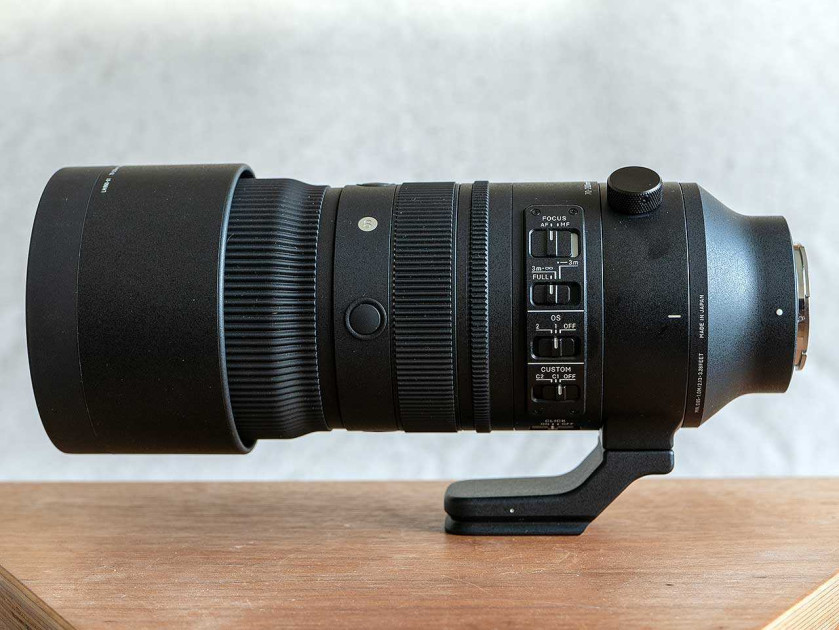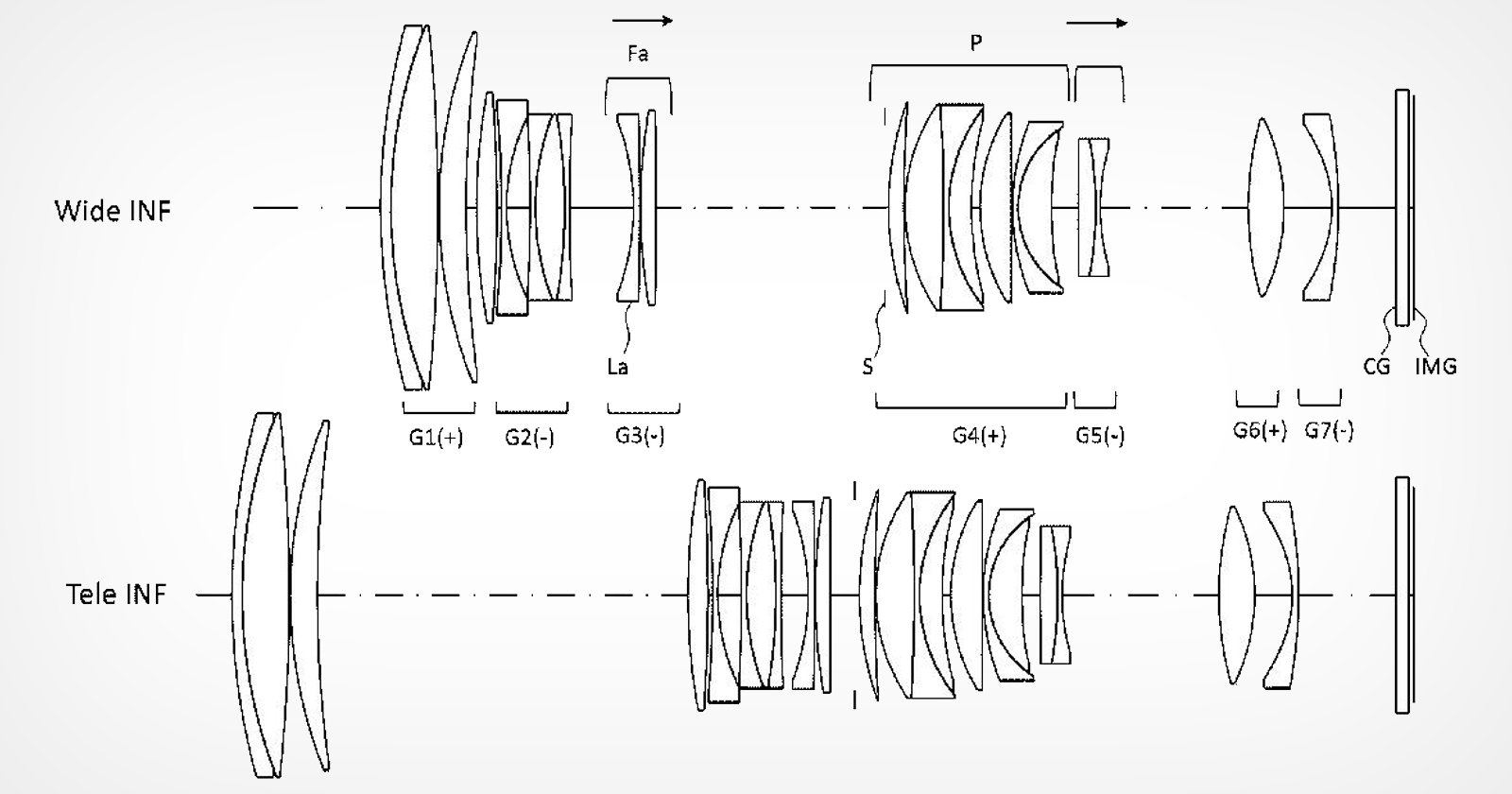
Introduction
The Sigma 70-200mm F2.8 DG DN OS Sports is a fast telephoto zoom lens for Sony, Leica, Panasonic and Sigma 35mm full-frame sensor mirrorless cameras.It can also be used with APS-C sensor cameras with an effective increase in focal length to 105-300mm.The optical formula is comprised of 20 elements in 15 groups, including 6 “F” Low Dispersion (FLD) and 2 Special Low Dispersion (SLD) elements to reduce chromatic aberrations and color fringing, plus 3 aspherical lenses to limit distortion and spherical aberrations.This lens has a minimum focusing distance of 65cm / 25.6″ with a maximum magnification ratio of 0.19x at the 70mm focal length.It features a rounded 11-blade diaphragm which creates a very attractive blur to out-of-focus areas of the image and an internal focusing and zooming mechanism means the lens barrel never moves.This lens uses dual HLA (High-response Linear Actuator) motors for fast, quiet and precise auto-focusing and full-time manual focus override is also possible by rotating the focus ring while using autofocus.It offers up to 7.5 stops of built-in optical image stabilisation at 70mm and 5.5 stops at 200mm and is equipped with two OS modes.The Super Multi-Layer coating helps to ensure that flare and ghosting are well-controlled even in backlit conditions and the lens mount has a dust and splash resistant structure with special sealing at the mount connection, manual focus ring, zoom ring, and cover connection.A traditional aperture ring runs from f/2.8 to f/22 in third-stop increments with an Auto setting also available for camera-based aperture selection.This lens also has a zoom lock switch, a focus limiter and three customisable AFL buttons. There is also a removable rotating tripod collar/socket with a replaceable Arca-type compatible foot.For L-Mount users, two dedicated teleconverters can be used with this lens – a 1.4x (TC-1411) and a 2x (TC-2011). The TC-1411 increases the lens’s reach up to 280mm and the TC-2011 up to 400mm.The Sigma 70-200mm F2.8 DG DN OS Sports lens is available in Sony E-Mount and L-Mount versions and is priced at £1499 / $1499 in the UK and USA, respectively.This lens was first announced in November 2023. It is designed and made in Japan.
Ease of Use
The Sigma 70-200mm F2.8 DG DN OS Sports is an impressively compact and lightweight zoom lens, measuring 20cms / 8.1in. in length and weighing in at 1335g / 47.1oz.
This includes the removable tripod collar/socket, yet it still manages to maintain a constant aperture of F2.8 throughout the entire zoom range.
This makes it the one of the most compact 70-200mm zooms in its class, when assessed as an AF compatible, F2.8 constant aperture zoom lenses for 35mm full-frame sensor cameras
It is shorter and much lighter than the comparable 70-200mm f/2.8 DG OS HSM Sports DSLR version that we tested back in 2019.
This is a lens that you can easily hand-hold for a long time, with no real need for it to be mounted on a tripod or monopod.
As demonstrated by the product images, it’s a great match even for a relatively small camera like the Sony A7C II that we tested it with, where it feels well balanced.
While you can use it on a smaller APS-C body, it won’t balance very well at all (and the focal length will also change).
Build quality is excellent given the affordable price tag. The lens has a plastic shell with a mixture of metallic magnesium parts and a compound material, TSC (Thermally Stable Composite), used inside.
It also incorporates a brass bayonet mount that’s supposed to be more durable than a normal metal mount. The optical elements are made of high-grade glass.
The Sigma 70-200mm F2.8 DG DN OS Sports feels solid enough in your hand, despite its mostly polycarbonate construction.
The zoom ring is generously wide and it has a tactile ridged, rubberised grip band with a smooth action.
Thanks to its inner zoom design, the lens does not extend at all when fully zoomed out to 200mm, maintaining a constant length.
The focusing ring is on the narrower side and is located towards the center of the lens mount. There’s no distance scale and no depth of field scale on this lens.
There are no hard stops at either ends of the range, either, making it harder to set focus at infinity. Pol ariser users should be pleased that the 77mm filter thread doesn’t rotate on focus.
In terms of features, the Sigma 70-200mm F2.8 DG DN OS Sports offers everything that you need from a professional telephoto zoom lens.
This very usefully includes built-in Vibration Reduction, activated by the OS switch on the lens barrel, which offers up to 7.5 stops of compensation. The OS system has two modes – mode 1 is suitable for general photography, and mode 2 is best for panning shots of moving subjects.
The 70-200mm F2.8 DG DN OS Sports lens features a traditional aperture ring for the first ever time on a Sigma zoom.
It has 1/3EV stops ranging from f/2.8 to f/22 and an Auto setting if you prefer to set the aperture via the camera body.
There’s also a Lock switch which either locks the aperture ring to Auto or to the aperture values, and a Click switch that lets you de-click it for silent operation during movie recording.
An AF/MF switch on the side of the lens makes it easy to switch between the two focusing systems.
In use, we found the focusing system to be quiet, fast and reliable with the lens mounted on a Sony A7C II camera. It’s also a very quiet performer, thanks to the newly developed built-in dual High-response Linear Actuator motors, making it well-suited to video recording, especially as it has also been designed to suppress focus breathing.
Focusing is usefully internal and manual focusing is possible when set via the Focus switch on the lens barrel. Full-time manual focus override is also available by using the Direct Manual Focus (DMF) function on Sony cameras and then rotating the focus ring.
There is a focus limiter switch which has three settings, Full, 3m-infinity and closest focus distance-3m, which helps speed up the auto-focusing if you know how far your subject is from the lens. You can also use the Sigma USB dock to customise these ranges to your own needs.
There are three dedicated Auto Focus Lock (AFL) buttons located between the zoom and focus rings that can be optionally re-configured to assign various functions to the lens barrel and there is also a Custom Mode switch with two available modes.
The lens has a dust and splash-proof construction with a water and oil repellent front coating that should help it to withstand most inclement conditions.
The tripod collar has a locking knob that allows the lens and camera to rotate freely to position them horizontally or vertically. The magnesium tripod socket (TS-151) has a 1/4″ screw hole and is Arca Swiss compatible.
The lens is supplied with plastic lens caps, a carbon-fibre reinforced plastic circular cover-type lens hood (LH860-01) with a locking mechanism, and a good quality padded case. The filter size is 77mm.
Note that this lens is not compatible with Sony’s 1.4x and 2x teleconverters and Sigma don’t provide their own TCs for the E-mount system.
Sigma’s very useful USB dock isn’t available either for the Sony system, and this lens isn’t compatible with the very fastest burst shooting rates that cameras like the Alpha 1 or A9 III offer.
Focal Range
At the 70mm focal length the angle of view is 34.3 degrees.
70mm
At the 200mm focal length the angle of view is 12.3 degrees.
200mm
Chromatic Aberrations
Chromatic aberrations, typically seen as purple or blue fringes along contrasty edges, are well controlled with this lens.
70mm
200mm
Vignetting
With the Sigma 70-200mm F2.8 DG DN OS Sports wide open at f/2.8, you can see some noticeable light fall-off in the corners. Stopping down helps, although to completely get rid of this phenomenon, you will need to use an f-stop of at least f/5.6 or smaller.
70mm
200mm
Distortion
There’s quite a lot of barrel and pin-cushion distortion evident in both the JPEG and RAW files which you’ll need to correct in post-processing until a suitable lens profile is released for your editing software.
70mm
200mm
70mm
200mm
Sunstars and Flare
The Sigma 70-200mm F2.8 DG DN OS Sports produces quite nice sunstars when stopped-down to f/22, as shown below, although it it a little prone to flare when shooting directly into the sun.
70mm
200mm
70mm
200mm
Macro
The close-focus point is 65cm / 25.6″ from the film/sensor plane at the 70mm focal length and 100cm / 39.37″ at 200mm. It has a maximum magnification ratio of 1:5.2 / 0.19x at the 200mm focal length.
70mm
200mm
70mm
200mm
70mm
200mm
70mm
200mm
Bokeh
Bokeh is a word used for the out-of-focus areas of a photograph, and is usually described in qualitative terms, such as smooth / creamy / harsh etc.
One of the reason to buy such a fast lens as the Sigma 70-200mm F2.8 DG DN OS Sports is to be able to isolate the subject from the background.
Sigma have also used an iris diaphragm with 11 rounded blades for a very pleasing rendering of the out-of-focus highlights.
Below you’ll find some examples, but you are also encouraged to check out our sample images.
70mm
200mm
70mm
200mm
70mm
70mm
200mm
200mm
Sharpness
In order to show you how sharp the Sigma 70-200mm F2.8 DG DN OS Sports lens is, we are providing 100% crops on the following pages.






